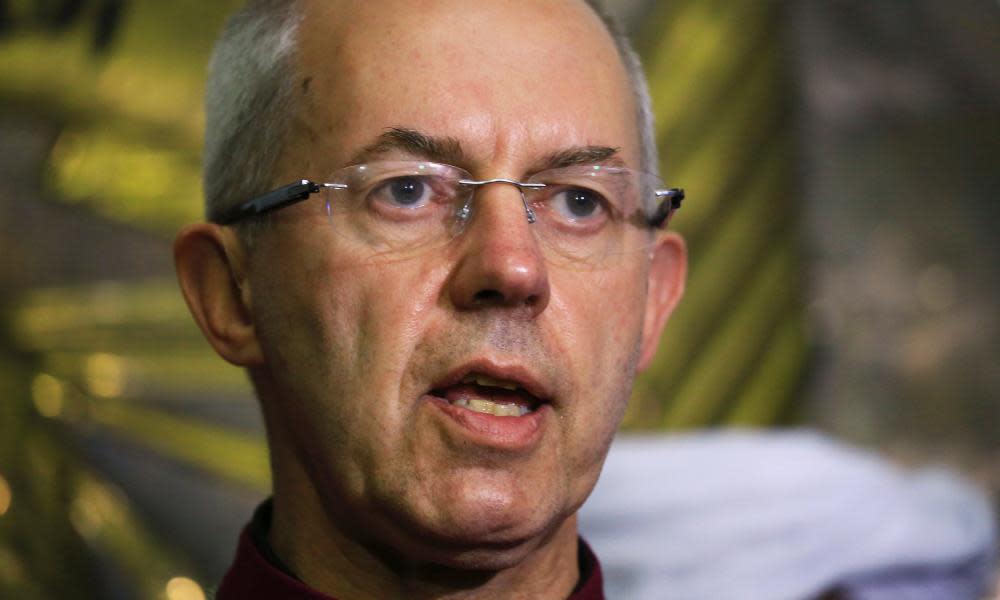I pray in tongues every day, says archbishop of Canterbury

The leader of the Church of England has said that he prays in tongues every day – although the archbishop of Canterbury said it was “not usually an immensely ecstatic moment”.
Justin Welby made the disclosure about his daily prayer routine in an interview with a Christian radio station, Premier.
He said: “In my own prayer life, and as part of my daily discipline, I pray in tongues every day – not as an occasional thing, but as part of daily prayer.”
He added: “It’s not something to make a great song and dance about. Given it’s usually extremely early in the morning it’s not usually an immensely ecstatic moment.”
Welby rises at about 5am each morning to have time to pray before his working day begins.
The archbishop also said he expected to “hear from God through other people with words of knowledge or prophecies – some of which I am unsure about, others I can sense there being something of the spirit of God”.
“Words of knowledge” and “prophecies” are believed to be revelations from God about people or future events. Both are common in Pentecostal and “charismatic” evangelical churches.
The bible refers to speaking in tongues in several places, including Jesus telling his apostles they will “speak with new tongues” as a sign that they believe in him.
Charismatic evangelical worship often includes people speaking in tongues and other signs of possession by the Holy Spirit, including swaying, trances and falling to the ground.
Some traditional Anglicans fear that such worship can alienate non-Christians, and might suggest that not everyone is chosen to receive the “gift” of tongue-speaking.
Welby is associated with the evangelical wing of the Church of England, and in particular Holy Trinity Brompton in west London, the leading evangelical church in the country, which brands itself as HTB.
In the 1980s, before he was ordained as a priest, Welby regularly attended HTB, which attracts a large congregation of City workers and professionals to its evangelical Alpha courses during which people are encouraged to speak in tongues.
The archbishop is a close friend of Nicky Gumbel, HTB’s vicar and the architect of the Alpha course, which is now available in dozens of countries.
Welby has previously recalled that he first began to speak in tongues after he was “overwhelmed by the love of God” as he read John 3:16 – “For God so loved the world, that he gave his only begotten Son” – two weeks after becoming a Christian, aged 19.
“It was from that moment and in the days that followed I realised that the Holy Spirit of God had touched me in a very powerful way,” he told the Anglican Communion News Service in 2015. “I began to speak in tongues and began to learn of the intimacy that Christ brings to us.”
In Mark 16:17, Jesus declared: “And these signs will accompany those who believe: In My name they will drive out demons; they will speak in new tongues.”
However, the practice, also known as glossolalia, is not embraced by all Christians. Cessationists believe that such gifts ended with Jesus’s apostles in the first century.
A US study by neuroscientists, published in 2006, supported the idea among many people who speak in tongues that it reflects a state of mental possession. Brain images of five women while they spoke in tongues showed that their frontal lobes – the thinking, wilful part of the brain through which people control what they do – were relatively quiet, as were the language centres.
In the Premier interview, Welby warns of “the danger of putting ‘charismatic’ as a tribal category within the church”, saying that “all Christians are filled with the Spirit, so every Christian is a charismatic in that sense”.

 Yahoo News
Yahoo News 
